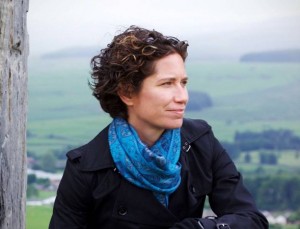Mary-Jane Rubenstein Discusses Multiple Universes on Studio 360

Professor and Chair of Religion Mary-Jane Rubenstein was a guest on PRI’s “Studio 360” to discuss the history of scientific thinking on multiple universes. Though scientists today are becoming increasingly interested in thinking about multiple universes, the idea actually dates back about 2,500 years to the Atomist philosophers of Ancient Greece. Rubenstein discussed how the Atomists arrived at a theory of multiple universes:
For the ancient Atomist philosophers, the most desirable thing about what we’re now calling the multiverse was that it got rid of the need for a god. If it is the case that our world is the only world, then it’s very difficult to explain. How is everything so perfect? How is it that sunsets are so beautiful. What the Atomists believed was that religion and the belief in these kinds of benevolent gods actually caused people to behave terribly to one another. so they wanted to find a different explanation. so their explanation was that it’s not the case that some anthropomorphic god or gods made the universe so that it was just perfect the way it is. but that actually our world was just one of an infinite number of other worlds that looked totally different from our world, and that worlds were the product just of accident, of particles colliding with one another and randomly forming worlds ad infinity… It sounds a lot like modern physics.
Host Kurt Andersen also asked Rubenstein how this theory, as it becomes popularized, will affect the way people think about their lives. She replied:
It’s a great question. Every major development in modern Western science since Copernicus has been advertised as this radical de-centering of our importance… Copernicus takes us out of the center of the solar system, and then Darwin takes us out of the garden of Eden, Freud takes us out of control of our own psyches — as science progresses, we learn that we are less and less important than we thought we were. That’s one argument. But of course, it doesn’t seem to be the case that these purported de-centralizations of the importance of the human have in any way contributed to our feeling like we’re insignificant. We still tend to think that we run the planet.
Rubenstein is also professor of science in society, professor of feminist, gender and sexuality studies. Listen to the full interview here.

